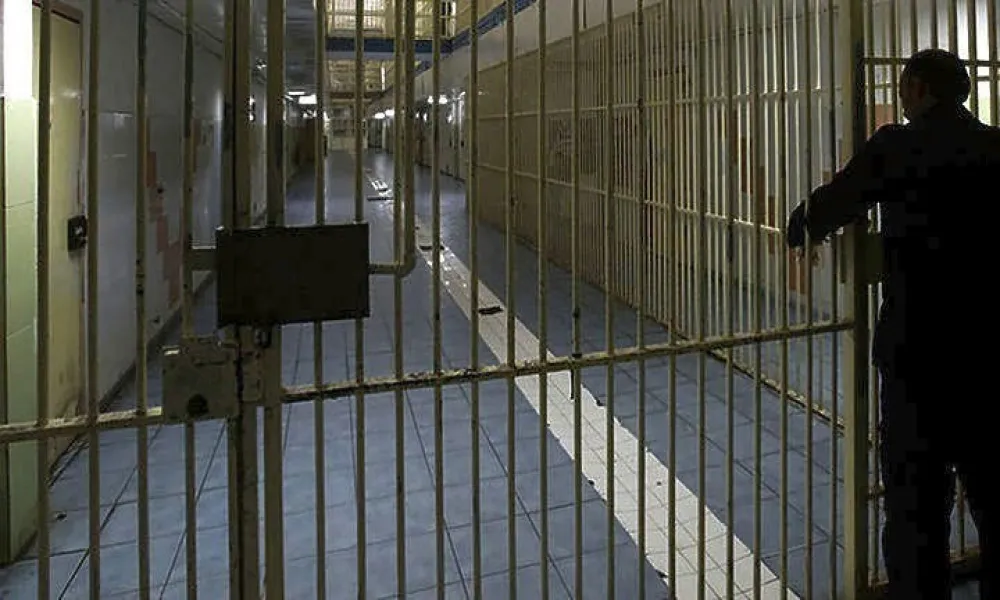A total of 75 individuals convicted of sexual offenses against minors have been released from prison. They are now circulating among the general public under the supervision of the Authority for the Supervision of Convicted Sex Offenders Against Minors, even as the legislative proposal for their chemical castration languishes in Parliament. This number is expected to rise over time, as approximately 100 more individuals convicted of sexual offenses against minors are currently held in a special wing at the Central Prisons.
Supervision of these offenders includes, among other measures, restrictions on employment and residence, provision of psychological support and therapy, and assessment of their risk of reoffending. They are closely monitored by the relevant state agencies and are prohibited from entering or remaining near schools or places frequented by their victims or other children.
Specifically, individuals convicted of sexual offenses against minors are referred to the Authority for Supervision in the following ways:
-
By court decision, at any stage of the criminal process or during sentencing.
-
Through a supervision order issued by the court upon request of the Attorney General.
-
After release from prison, with the Authority being notified by the Central Prisons administration.
The Authority evaluates each case in detail, taking into account reports from Mental Health Services and Social Welfare Services, and determines the appropriate supervision measures. These may include psychological support or therapeutic intervention, with ongoing assessment to decide whether to continue or adjust the measures.
The Authority comprises the Director-General of the Ministry of Justice (chair), and representatives from the Police, Legal Services, Mental Health Services, Social Welfare Services, Ministry of Education, Prisons Department, Parole Board, and the Cyprus Youth Organization.
Proposed legislative changes
A draft amendment by the Ministry of Justice aims at enhancing the effectiveness of the Authority for the Supervision of Convicted Sex Offenders Against Minors. The proposed law expands the Authority’s powers to better monitor convicted sexual offenders.
The draft provides for additional restrictive measures for supervised offenders, such as electronic monitoring via ankle bracelet, temporary or permanent bans on specific commercial activities or services, exclusion from public benefits, regular check-ins at a police station, and mandatory notification to the Police, the Authority, and the supervisor of any change in address, employment, or travel abroad.
Life imprisonment and chemical castration
A bill submitted seven months ago by MP Michalis Yiakoumis (DIKO, Famagusta) remains pending in the Parliamentary Legal Committee. The bill allows judges to impose life imprisonment on child molesters and grants the Parole Board the authority to release life-sentenced offenders conditionally if they consent to chemical castration, ensuring public safety.
Under the proposed rules, a convict can request conditional release after serving two-thirds of their sentence (or at least 18 years for life imprisonment). If they consent to chemical castration, they may request release after serving half of their sentence (or at least 12 years for life imprisonment).
Yiakoumis cites a significant rise in sexual offenses against children in Cyprus, stressing the urgent need for state action. He also references EU guidance requiring member states to implement effective measures to prevent recidivism among sex offenders. Several EU countries already allow voluntary chemical castration for convicted child sex offenders.
Chemical castration in 12 EU member states
Chemical castration, involving medication to reduce or eliminate sexual drive, is permitted in 12 EU countries as a therapeutic measure, requiring the offender’s consent, except in Poland, where it is mandatory by court order.
In some countries, such as the Czech Republic and Germany, surgical castration (orchiectomy) is allowed under strict conditions with explicit consent. The European Committee for the Prevention of Torture (CPT) has established strict guidelines to ensure compliance with human rights standards. Any potential introduction of chemical castration in Cyprus would need to adhere to this EU framework.
